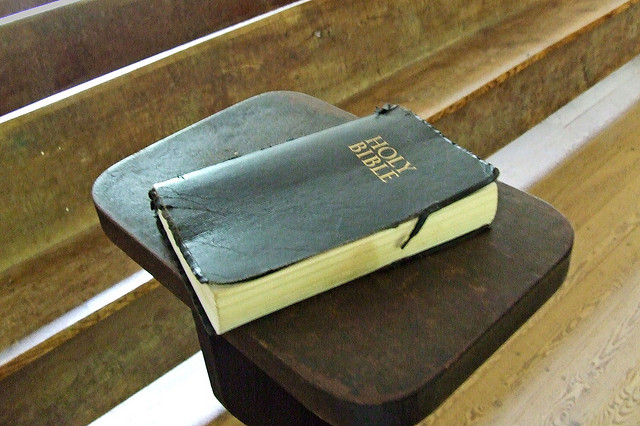There is an ever so slight difference between an idea that is biblical and a statement that is actually in the Bible. Just because a quote doesn’t come from the Bible doesn’t mean that it can’t represent a Biblical value or ideal. However, care must be taken to communicate which is which or else we run the risk of perpetuating the memorization of verses that aren’t actually verses. With so many great options for the discipline of scripture memory available, it’s a far better idea to stick to passages that are actually in the Bible. Even still, exploring what those common misconceptions are and whether or not they represent or contradict a Biblical idea is important.
The three blogs in this series will expose three common statements or ideas assumed to be biblical. It’s one thing to declare the fact that these statements are not found within the 66 books. It’s another thing to uncover how these statements may redirect us toward a deeper understanding of what the Bible actually says.
Statement #1: Cleanliness is next to godliness.
Anyone who has ever been reminded by Nana to wash behind the ears has likely heard the declaration. While  grandma probably never attached it to a specific reference, the slippery slope was the assumption that somewhere nestled in Proverbs among other wise admonitions was the importance of being tidy. Problem is, Solomon never said it. Neither did any other Biblical writer.
grandma probably never attached it to a specific reference, the slippery slope was the assumption that somewhere nestled in Proverbs among other wise admonitions was the importance of being tidy. Problem is, Solomon never said it. Neither did any other Biblical writer.
So what about scripture would perpetuate this idea of cleanliness being paramount to godliness and is it a bad ideal? Start at the beginning with the strict rules about Israelite behavior associated with worship. Causes of uncleanliness in Leviticus include but are not limited too certain types of animals, unconsecrated meat, skin diseases, and even menstruation. The Mosaic law took care to provide specific instructions regarding behavior related to hand washing, laundry, and sacrifice. Clearly, there is a pattern of order related to what renders a person clean or unclean according to Old Testament law. But that doesn’t warrant a leap in our minds towards the obsessive use of hand sanitizer or ritualistic vacuuming.
Next, a journey through the poetic writings is in store. Perhaps the assumption about cleanliness is more of a metaphor in nature. Psalm 51 offers us David’s response to the accountability of Nathan the prophet regarding David’s sin concerning Uriah and Bathsheba. David repents of his action and seeks God’s forgiveness. David writes, “Purify me with hyssop, and I will be clean; wash me, and I will be whiter than snow.” [verse 7] “God, create a clean heart for me and renew a steadfast spirit within me.” [verse 10] Faced with the reality of his sin, the man after God’s heart recognized the need for cleanliness in his own.
Jesus too talked about cleanliness. In Matthew 23, during one of Christ’s many confrontations with Pharisee leaders, Jesus exclaimed, “Woe to you, scribes and Pharisees, hypocrites! For you clean the outside of the cup and of the dish, but inside they are full of robbery and self-indulgence. You blind Pharisee, first clean the inside of the cup and of the dish, so that the outside of it may become clean also.” [Matthew 23:25-26] The Pharisees maintained strict disciplines to appear spiritually/ceremonially clean on the outside, but inside were full of greed and pride. Jesus saw through the facade and made an example out of them for the rest of us to understand that it’s what’s on the inside that counts. Paul offers us the best explanation of just what happens when the forgiveness transaction takes place in our lives. We, who are ungodly [unclean] are credited as righteous. Romans 4:5 declares, “But to the one who does not work, but believes on Him who declares righteous the ungodly, his faith is credited for righteousness.”
Cleanliness referencing a tidy home or regular showers isn’t at the right hand of godliness. But perhaps cleanliness as a metaphor for forgiveness, thereby our means of righteousness, is as close as you can get. The statement itself can’t be found in scripture. However, depending on your definition of cleanliness, the ideal is certainly a biblical one worth exploring. If the statement prods you to examine what real forgiveness is related to right standing before God, it’s one worth perpetuating.
Nic Allen is a pastor, teacher, and writer. He currently serves as Family Pastor at Rolling Hills Community Church in Franklin, TN.
Images @ 2006 Arlington County. Creative Commons. @ 2009 Carl and Tracy Gossett
